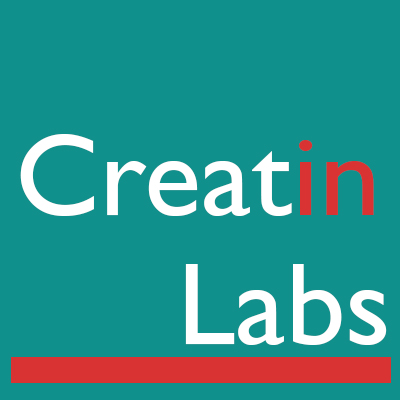There’s a growing trend toward personalized nutrition, where dietary plans are tailored specifically to your genetic makeup, lifestyle, and health goals. This approach promises to optimize your health by addressing unique needs that standard dietary advice may overlook. However, the effectiveness and practicality of personalized nutrition can be debated among experts. In this blog post, you’ll explore the potential benefits and drawbacks of customized dietary strategies, helping you make informed choices about what may work best for you.

Key Takeaways:
- Personalized nutrition tailors dietary recommendations based on an individual’s unique genetics, lifestyle, and health goals.
- There is a growing body of research indicating that one-size-fits-all dietary guidelines may not be effective for everyone.
- Technology, such as wearable devices and apps, play a significant role in providing personalized nutrition insights.
- Personalized nutrition can enhance motivation and adherence to dietary plans, potentially leading to better health outcomes.
- Ethical concerns and the risk of dietary misinformation highlight the importance of consulting healthcare professionals when considering personalized nutrition.
The Personalization Paradigm: Meeting Individual Needs
Personalized nutrition seeks to address the unique dietary requirements of each individual by considering factors such as genetics, lifestyle, and environmental influences. With advancements in nutritional science, you can now gain deeper insights into your specific health needs. This tailored approach allows for more effective dietary interventions, improving not only physical health but also enhancing overall well-being. You may find that what works for someone else does not necessarily apply to you, emphasizing the importance of individualized strategies in achieving optimal nutritional health.
The Science of Nutritional Genetics
Nutritional genetics examines how your genetic makeup influences your body’s response to different foods and nutrients. Variations in genes can dictate your metabolism, nutrient absorption, and even your susceptibility to certain diseases. Understanding these genetic factors empowers you to make informed dietary choices that align with your body’s unique requirements, potentially enhancing your health outcomes and minimizing risks associated with common dietary pitfalls.
Tailoring Diets: From Blood Type to Microbiome
Diet personalization can span various approaches, from blood type recommendations to gut microbiome analysis. Each method offers insights that might cater to your specific nutritional needs. For instance, proponents of the blood type diet suggest that different blood types react better to certain foods, impacting digestion and overall health. Meanwhile, the analysis of your microbiome reveals the diverse bacteria residing in your gut, helping to tailor dietary choices that may promote better digestion and a healthier immune system.
Tailoring diets based on both blood type and microbiome presents a dynamic approach to nutrition. The blood type diet recommends foods that align with your specific group, suggesting, for example, that type O individuals thrive on a high-protein diet, while type A individuals may benefit from a plant-based regimen. In contrast, microbiome-based approaches involve identifying which foods foster beneficial gut bacteria for your unique microbial composition, often suggesting probiotics and prebiotics to optimize health. Research increasingly supports these methodologies, as personalized dietary strategies may lead to improved metabolism, better weight management, and enhanced overall health tailored specifically to your biology.
Marketing or Merit? Dissecting Industry Claims
Navigating the landscape of personalized nutrition involves differentiating between effective solutions and marketing hype. With a saturated market where claims are often exaggerated, you may find it challenging to identify what truly delivers results. Bold assertions about dramatic weight loss or improved health outcomes frequently come hand-in-hand with flashy advertisements rather than solid scientific backing. It’s important to critically evaluate these claims and understand the underlying mechanisms before committing to a specific regimen or product.
The Role of Nutritional Influencers and Fads
Nutritional influencers play a pivotal role in shaping public perception around personalized nutrition. Their rising prominence through social media channels often drives trends that may lack scientific evidence. This phenomenon can lead you to adopt diets or supplements based on popularity rather than proven effectiveness. While some influencers do share credible information, others may not fully endorse certifications or research, risking the quality of advice you receive. Be discerning in choosing your sources.
Evidence-Based vs. Anecdotal Support
Evidence-based approaches rely on rigorous scientific research, while anecdotal support leans on personal experiences and testimonials. In personalized nutrition, anecdotal evidence can be compelling, but it rarely holds up to scientific scrutiny. Success stories can be motivational, yet they often do not account for variable factors, like individual differences and lifestyle changes. Prioritizing evidence-based information can help you make informed dietary choices and avoid the pitfalls of relying solely on anecdotal claims.
Engaging with evidence-based nutrition means prioritizing peer-reviewed studies and clinical trials over personal testimonials. For instance, a study published in the “Journal of Nutritional Biochemistry” demonstrated that tailored dietary plans significantly improved metabolic markers when compared to generic diets. On the other hand, a single success story about a fad diet lacks the scientific rigor to make it a reliable foundation for your nutritional choices. By focusing on research, you equip yourself with knowledge rooted in scientific methodology, steering clear of trendy fads that may offer fleeting results.
Ethical Implications: Should We Personalize Nutrition?
Examining the ethics of personalized nutrition raises important questions about individual autonomy, informed consent, and the responsibilities of food providers. While the idea of tailored dietary plans seems beneficial, it also poses the risk of leading to a one-size-fits-all mentality among companies, potentially prioritizing profit over well-being. Ensuring that personalized solutions genuinely consider moral dimensions and serve the greater good is necessary for navigating this complex landscape.
Accessibility and Affordability of Personalized Solutions
Personalized nutrition often comes with the perception that services and products are premium, raising issues of accessibility for various socioeconomic groups. Without affordable options, tailored solutions may remain exclusive to those with higher incomes, creating a gap in nutrition quality based on economic status. This disparity can hinder the effectiveness of personalized dietary interventions in promoting overall public health.
The Risk of Inequality in Dietary Recommendations
The push toward personalized nutrition can inadvertently perpetuate existing inequalities in dietary guidance. Those who can afford personalized services gain individualized insights, while marginalized populations may lack access to basic nutrition education and resources. Systems prioritizing personalized recommendations based on genomic data or sophisticated algorithms may overlook individuals without the means to obtain or understand such tailored advice. These disparities in access can widen dietary gaps and health outcomes among different communities.
Research illustrates that socioeconomic status significantly influences dietary choices and health outcomes. For instance, a study indicated that low-income families often rely on inexpensive, energy-dense foods that are far from personalized dietary recommendations. If these families are excluded from the benefits of personalized nutrition, it perpetuates risk factors for chronic diseases in vulnerable populations. Without a focus on inclusivity, the promise of personalized nutrition risks becoming an elitist privilege rather than a universal benefit aimed at improving health for all individuals.
Practical Steps for Customizing Your Diet
Customizing your diet begins with understanding your unique body and lifestyle needs. Start by assessing your current eating habits, identifying food preferences, and taking stock of any health conditions or dietary restrictions. Consider using food journals to track your daily intake and how different foods influence your energy levels and moods. Engaging with a registered dietitian can provide personalized guidance, ensuring your diet aligns with your health goals and nutritional needs. Small, gradual changes often yield the best results, making it easier to sustain a customized nutrition plan over time.
Tools and Technologies for Personal Nutrition
Your journey into personalized nutrition can be enhanced with various tools and technologies. Mobile apps that track your food intake, fitness levels, and biometric data can provide insightful feedback. Some platforms, like MyFitnessPal and Cronometer, help you analyze your nutritional intake. Genetic testing services, such as 23andMe or DNAfit, offer insights into how your body processes certain nutrients, leading to more tailored dietary choices. Wearable devices can also monitor your physical activity and vital signs, helping you make more informed decisions about your nutritional needs.
Integrating Personalized Nutrition into Everyday Life
Bringing personalized nutrition into your daily routine requires planning and consistency. Begin by meal prepping with foods that align with your nutritional goals, making it easier to stick to your customized plan during busy days. Incorporate your favorite leans proteins, healthy fats, and personal dietary preferences into well-balanced meals. Enjoy experimenting with new recipes that naturally cater to your unique needs, while also remaining flexible for social gatherings or dining out. Note, it’s about finding the right balance and allowing room for adjustments as your lifestyle and goals evolve.
Establishing a seamless integration of personalized nutrition into your life can lead to sustainable habits. Start by setting achievable weekly goals that align with your nutritional objectives. Engage your family or friends by sharing your journey, perhaps involving them in meal planning or trying out new recipes together. Regularly assess how you feel with your dietary changes, adjusting your approach if needed. Utilizing community resources, such as local workshops or online forums, can also provide support and fresh ideas for maintaining a balanced, personalized diet. Ultimately, the key lies in finding what works best for you, ensuring that healthy choices become a natural part of your lifestyle.

Perspectives from Experts: Voices in Nutrition
As personalized nutrition gains traction, nutritionists and dietitians are cautiously optimistic yet often skeptical, advocating for evidence-based approaches that consider your unique health profile and metabolic responses. Meanwhile, geneticists emphasize the importance of genetic testing to understand your predispositions better, arguing that genetic information can tailor diet plans that resonate with your biology. This ongoing dialogue highlights a spectrum of perspectives that reflect the complexity of individual needs, pushing the boundaries of conventional dietary practices and challenging traditional beliefs about nutrition.
Nutritionists vs. Geneticists: The Ongoing Debate
The debate between nutritionists and geneticists centers on the best methods for tailoring diets to individual needs. Nutritionists argue that empirical guidelines and personalized consultations yield practical results, while geneticists contend that understanding your unique genetic makeup provides deeper insights into your dietary requirements. This juxtaposition underscores the evolving landscape of nutrition, where incorporating both perspectives can lead to a more well-rounded approach to diet and health.
Real-Life Success Stories and Skepticism
Success stories often highlight individuals who have transformed their health through tailored nutritional advice, yet skepticism persists regarding the effectiveness and accessibility of personalized nutrition solutions. Many people share anecdotes of significant weight loss or improved health markers after following customized plans, while others question the scientific backing of such interventions. The contrasting experiences encapsulate a narrative where personal testimonies must be weighed against clinical evidence to establish the true impact of personalized nutrition.
A case study involving a 35-year-old woman named Sarah illustrates this dichotomy. After struggling with metabolic syndrome for years, she turned to a genetics-based nutrition program that utilized her genetic data to design a tailored eating plan. Over six months, she lost 30 pounds and reported increased energy levels. However, her friend Mark followed a conventional diet approach and also achieved significant weight loss without genetic insights. Their experiences illuminate the ongoing skepticism surrounding personalized nutrition: individual results vary, and hard evidence often remains elusive, leading to differing opinions on its overall validity and practicality.
Summing up
Following this exploration of personalized nutrition, you may find it transforming how you approach your health. Understanding that dietary needs differ from person to person can empower you to make more informed choices tailored specifically to your lifestyle and goals. While personalized nutrition offers significant benefits, it is crucial to remain critical and discerning about sources and methods. Weigh the evidence and ensure that your approach to nutrition aligns with scientific research for optimal well-being.
FAQ
Q: What is personalized nutrition?
A: Personalized nutrition refers to dietary guidance and meal planning that is tailored to individual needs, taking into account various factors such as genetics, lifestyle, preferences, and health goals. This approach aims to optimize health and well-being by offering customized recommendations rather than a one-size-fits-all solution.
Q: How is personalized nutrition beneficial?
A: Personalized nutrition can lead to better health outcomes by addressing specific dietary requirements and restrictions unique to each individual. This approach often helps in managing weight, improving metabolic health, and enhancing overall quality of life. Additionally, it can lead to increased adherence to dietary changes as it aligns with personal preferences and cultural factors.
Q: Are there any risks associated with personalized nutrition?
A: While personalized nutrition can provide significant benefits, there are potential risks, such as misinformation or reliance on unverified diet trends. It’s imperative to consult with qualified professionals, such as registered dietitians or nutritionists, to ensure the advice is based on sound science and tailored to the individual’s health status and needs.
Q: How can one start with personalized nutrition?
A: To begin with personalized nutrition, one should assess their health goals, dietary habits, and lifestyle factors. Seeking guidance from a nutrition professional is highly recommended to develop a tailored nutrition plan that considers specific nutritional needs, preferences, and any existing health conditions.
Q: Is personalized nutrition the same for everyone?
A: No, personalized nutrition is not the same for everyone. It varies widely based on individual factors such as genetics, age, gender, activity level, health conditions, and personal preferences. This variability is what makes personalized nutrition so effective, as it considers the unique attributes of each person to develop the best dietary approach for them.

